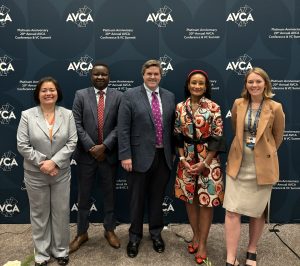Since the beginning of the epidemic, declared on 10 March 2020 in DR Congo, the cumulative total is 287 confirmed cases – Kinshasa has 275 cases, among which there have been 23 deaths and 25 people cured, as of April 17.
A total containment of the commune of Gombe in Kinshasa, considered the epicenter of the coronavirus epidemic in the Democratic Republic of Congo, began on Monday 6 April 2020. Since then, a special movement pass is required to enter or exit the commune of Gombe, the Congolese capital’s business center where administration, government houses, major embassies and business are concentrated.
Yet the anxiety continues. Questions are already being asked about the effects of the Gombe’s lockdown, but especially about the aftermath of the lockdown. Will the lockdown in this commune be extended? Will other communes be affected, given that cases are now being reported all over the city?
How can we envisage the confinement of a city of some 13 million inhabitants, a large part owhose population works in the informal sector, living from day to day, in a context that does not allow basic health precautions to be observed?
Is the way in which the authorities are managing the crisis effective in view of the pandemic’s progression at the city and the country scales?
And, in the meantime, Congo is again facing Ebola, with a fifth case of Ebola notified in Beni (North Kivu, Eastern Congo) within a week. Professor Muyembe, the man who discovered Ebola, is on the front line against the coronavirus. The 78-year-old Congolese doctor behind the discovery of the Ebola virus in 1976 was called in by the President, Felix Tshisekedi, to manage the Covid-19 epidemic. The British magazine The Lancet described him as the”Ebola hunter” in Africa.
In March 2020, when the Covid-19 pandemic arrived in the DRC, he confided his doubts about the country’s capacity to deal with the disease in an interview with the French newspaper Le Monde:
“Honestly, we are not ready. The population in the east of the country has been confronted with Ebola, they have understood the cost in human lives and the economic cost. But in the west and in Kinshasa, Ebola seems far away, so we have to do it all over again, and quickly”.
He also believes that the country’s care and resuscitation capacities are insufficient, and that medical staff are not sufficiently equipped.
Measures taken by the Congolese Government to support the country’s economy
- Exemption from taxes, duties, fees and charges will be made on the import and sale of inputs and pharmaceuticals.
- Emergency removal of inputs and pharmaceuticals currently in customs.
- Suspension, for three months, of the payment of the tax on rental income payable by companies.
- Support for the revival of business activities by means of zero-interest financing from the Industrial Promotion Fund.
- Suspension, for a period of three months, of a number of fiscal, parafiscal and economic control missions in companies.
- Suspension, for a period of three months, of the application of penalties for delays in the clearance of essential goods (mass consumer goods).
- Reinforcement of customs declaration software for goods.
- Single-window processing of all customs clearance.
- Removal of police barriers and checkpoints, within the territory, on the routes for the delivery of primary goods.
- Possibility of staff rotation in the event of a drop in activity or minimum service and prohibition of mass redundancies based on containment measures.
- Suspension, for a period of three months, of a number of provincial tax on agricultural products.
For its part, the Central Bank of Congo (BCC) invites the Congolese population to use electronic money in order to limit the risks of contamination by bank notes. Furthermore, additional measures have been taken to mitigate the negative impact of Covid-19 on the Congolese economy :
- Continued supply of cash to banks;
- Lower the policy rate from 9.0% to 7.5%;
- Special refinancing window with a maturity ranging from 3 to 24 months;
- Lower the compulsory set-aside for deposits in national curr from 2% to 0%;
- Postponement, until January 2022, of the provisions increasing minimum capital requirements for banks, SACCOs and microfinance institutions;
- Freezing of loan classification rules;
- Provisioning banks with good quality and sufficient quantity of banknotes for ATMs;
- Instruction to banks to disinfect banknotes before they are put back into circulation;
- Abolition of fees for e-money transactions and variable fees for transactions below CDF 2,500,000 in the RTGS and ACH system until the end of December 2020;
- Raising the limit for daily e-money transactions to USD 2,500, or equivalent in CDF, and removing the ceiling on the monthly limit for e-money transactions;
- Promotion of bilateral interoperability between electronic money institutions on the one hand and with other financial institutions on the other hand to facilitate transfers and payments in small businesses.
Donors response
All donors seem to be mobilizing to respond to the coronavirus pandemic in DRC: The World Bank has allocated 47 million dollars, the country benefits of US$20 million in debt relief from the IMF,
According to recent discussions with DFID, particular attention is being paid (i) to promoting the use of alternative financial distribution channels, as well as (ii) to analyze possible liquidity issues taking into account, inter alia, that DR Congo is a cash-based economy, DR Congo is a dollarized economy, banknotes (USD) are imported (more difficult in the current sanitary context), and primary goods are mostly imported, including food (requiring availability of cash in foreign currencies for transactions as well as balanced impact on retail prices in CDF).,




